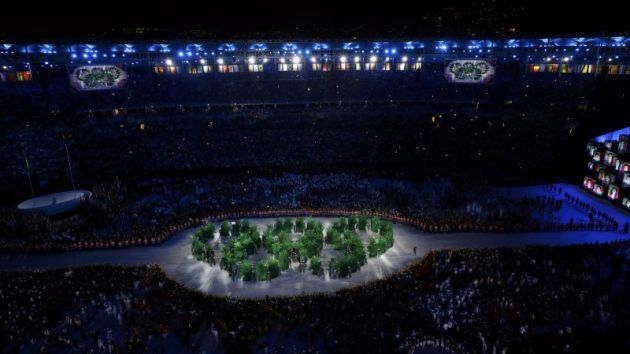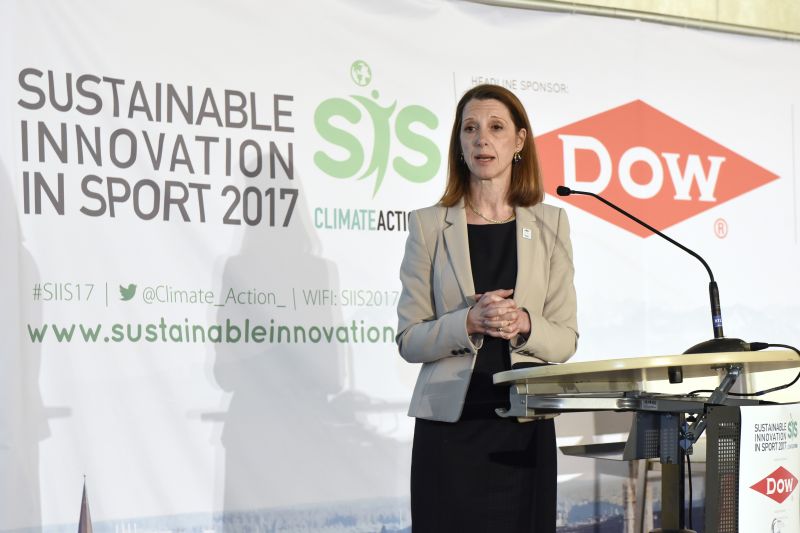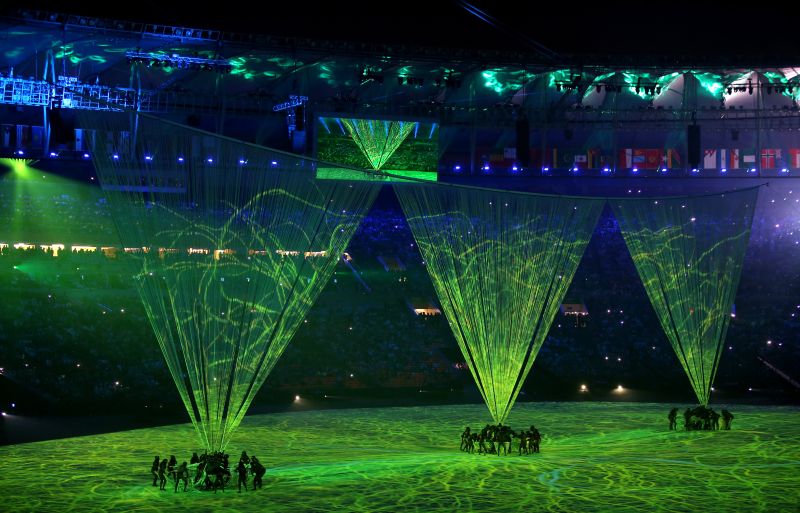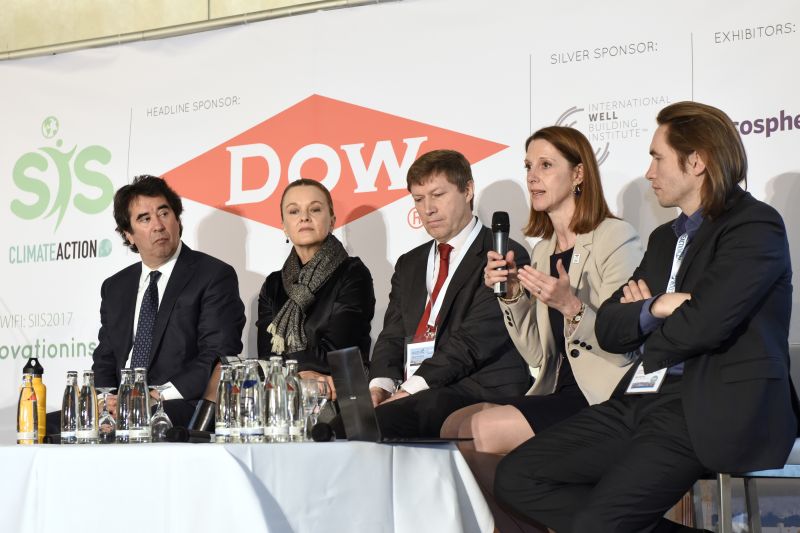A greener Games: Dow Chemical’s Nicoletta Piccolrovazzi on the Olympics and the environment
Dow Olympic and Sports Solutions’ global technology and sustainability director reflects on Rio 2016 and looks forward to Tokyo 2020 and beyond

Dow Olympic and Sports Solutions’ global technology and sustainability director reflects on Rio 2016 and looks forward to Tokyo 2020 and beyond.
The second Sustainable Innovation in Sport (SIIS) conference took place in Munich last week, gathering prominent figures from across the sector to discuss the work that is being done to make sport a more sustainable, environmentally friendly industry.
As well as being the forum’s headline sponsor, Dow Chemical is also part of the International Olympic Committee’s (IOC) The Olympic Partner (TOP) programme, and was the official carbon partner of the Rio 2016 Olympic Games. Dow Olympic and Sports Solutions’ global technology and sustainability director Dr Nicoletta Piccolrovazzi is better placed than most, then, to comment on the environmental state of play across the sports business. SportsPro caught up with Piccolrovazzi on SIIS’ second day to get her reflections on the event and find out how Dow is working to make each Olympic Games more sustainable than the last.
As an Olympic TOP sponsor, Dow had a big year in 2016, particularly as the Rio organising committee had made sustainability one of its key priorities. What kind of projects were you involved in to help them achieve a greener Games?
Ever since COP21 in Paris, we’ve continued to work in particular on our partnership with Rio 2016, where we were the official carbon partner. The COP was preceding the Rio Games, so we were in the midst of implementing our projects. What we have done as the official carbon partner of Rio is we implemented a range of projects in different application areas: in infrastructure, in agriculture, in industrial applications, in all these projects were really in the implementation phase. What we had to do in the run-up to the Games is we wanted to evaluate the results from these projects. So we worked with our third party auditor, ERM [Environmental Resources Management], to look at the results from the programme in Brazil and across Latin America, and get the carbon predictions and the carbon forecast verified by a third party. That was the big work to finish the implementation of the project. We were very happy because prior to the Olympic Games we were able to announce that these projects were expected to generate more than two million tonnes of carbon dioxide emissions reductions. Two million was our target, and currently we’re on target to reach 2.2 million tonnes of reductions.
 The key of the programme was really that it is a legacy programme. After the Games have finished, we’ve continued to monitor those projects and the results continue to be delivered. The dialogue is still very much alive in Brazil. We had started, for instance, a programme on energy efficiency in the construction value chain that engaged hundreds of people from that industry – from architects to specifiers to contractors – in different seminars, and we are going to do a follow-up seminar on that in the next couple of months.
The key of the programme was really that it is a legacy programme. After the Games have finished, we’ve continued to monitor those projects and the results continue to be delivered. The dialogue is still very much alive in Brazil. We had started, for instance, a programme on energy efficiency in the construction value chain that engaged hundreds of people from that industry – from architects to specifiers to contractors – in different seminars, and we are going to do a follow-up seminar on that in the next couple of months.
This is really important because the IOC is really trying to look for a legacy from all Olympic Games. For us, it’s not about leaving a legacy – we never leave. In 2016 we celebrated 60 years in Brazil, and we want to continue to grow our business in Brazil and Latin America far beyond that. So it’s not about just working at this event and then leaving, it’s about how we put steps in place prior to the event that continue to yield business results and adopt better technology in the country.
Have you already begun looking toward the legacy you can leave in Japan after the 2020 Games?
The way we work is we have a team of some global experts and then we always do the majority of our work on the ground with local teams. I think that’s very important, that we bring an understanding of the local market environment, and in Tokyo we have both Dow people who are there and we have also a joint venture that is very much in the energy efficiency area. So we have a dedicated team, and then the rest of the Dow business which is supporting the Olympics and sports solutions programmes, coming together to help in the collaboration to make Tokyo a sustainable Olympic Games.
Who do you see as best placed to ensure that every Olympics leaves a sustainable legacy? Is it the sponsors, the local organisers, or does it have to come from the top down as part of a wider IOC programme?
I think everybody has a specific role to play. The IOC did great work in the past year and a half to really develop a sustainability strategy. Having that vision clarified for the host cities and for future bid cities is extremely important, because that gives specific direction and sets out a visible a strategy for the IOC themselves as well as for the Games. The partners, particularly the TOP partners, have a very special role to play, because we participate in the Olympics, Games after Games. So we can really play a critical role in the transfer of knowledge. So for instance, Dow has not only been the official chemistry company but also the official carbon partner of the Sochi and the Rio Games. We of course have some learnings from there, and we’re now bringing those learnings to Tokyo.

Environmental issues played a key part in Fernando Meirelles' opening ceremony for the Rio 2016 Olympic Games. Picture by Martin Rickett/PA Images
The organising committees are in the position that they can only do this once. It’s all new people every time; some of them come from government, they come from other areas. They can really incorporate and benefit from the knowledge and experience of the TOP partners and from the IOC, and then they need to match that with the local environment, which is also our approach. In the carbon partnership we looked at where the emissions come from in Brazil to identify project opportunities. It’s not a copy-paste approach from one country to another; every country has its particularity. Brazil has a lot of agriculture and so it was very clear from the start that some of our project had to come from the range of farming industry that is very prominent in the country. So that perspective comes from the local organising committee but they work hand in hand with the TOP sponsors.
How do you assess the state of play in the sport industry at the moment with regards to sustainability?
I have been involved in the sports industry through Dow since 2011, and I must say that I have seen a lot of change in this period of time. London set the tone in 2012. Now there is no going back. While every organising committee needs to do what is right within their local context, I think the direction has been set. Of course it’s a journey, and so there are different steps to be taken along that journey but I can see particularly in what I have heard over the two days at the Sustainable Innovation in Sport forum that we are much further along this journey than we were five years ago.
What in particular that you've seen at SIIS has given you hope for the future?
One thing that has impressed me is the level of understanding already within this group. There are a lot of people who bring a lot of knowledge, and there was really a very good match between 50 per cent of experts and 50 per cent who came to listen and to learn. That makes me confident because you have people who bring the expertise and you have people who are ready to take that knowledge and implement it.
 Importantly, there is nobody questioning “Should we do sustainability in sport?” That isn’t even being asked any more, now the questions are only: “How shall we do it? How can we do it faster? How can we do it better?”
Importantly, there is nobody questioning “Should we do sustainability in sport?” That isn’t even being asked any more, now the questions are only: “How shall we do it? How can we do it faster? How can we do it better?”
I think there is an acceptance that you can’t ignore it any more, and not just in sports but across sectors. Dow is a science technology company, we have been a company for 120 years thriving on innovation, so for us having sustainability strategy is not an optional thing – we are in the third iteration of our sustainability goals, after launching our third generation in 2015 which are our goals for 2025. The most positive thing is that people don’t consider this optional any more, it’s just a question of how. Everybody has the intention of making the world better through sport, and sustainability is a big part of that.
To what extent do you see sport as the ideal platform for communicating with the wider world?
I think the reason why we are facing problems like climate change might be that we have not made solving that problem very appealing. At Dow we see ourselves as people who want to solve problems and I think sport can help make these problems more appealing, more interesting, more fun, more competitive. So we as a company look at sport as really just a magnifying lens for what we can do. I think sport can be a great lens to communicate with a huge number of people and can magnify the positive action that is being done around sustainability.
This article originally appeared on SportsPro

_400_250_80_s_c1.jpg)




